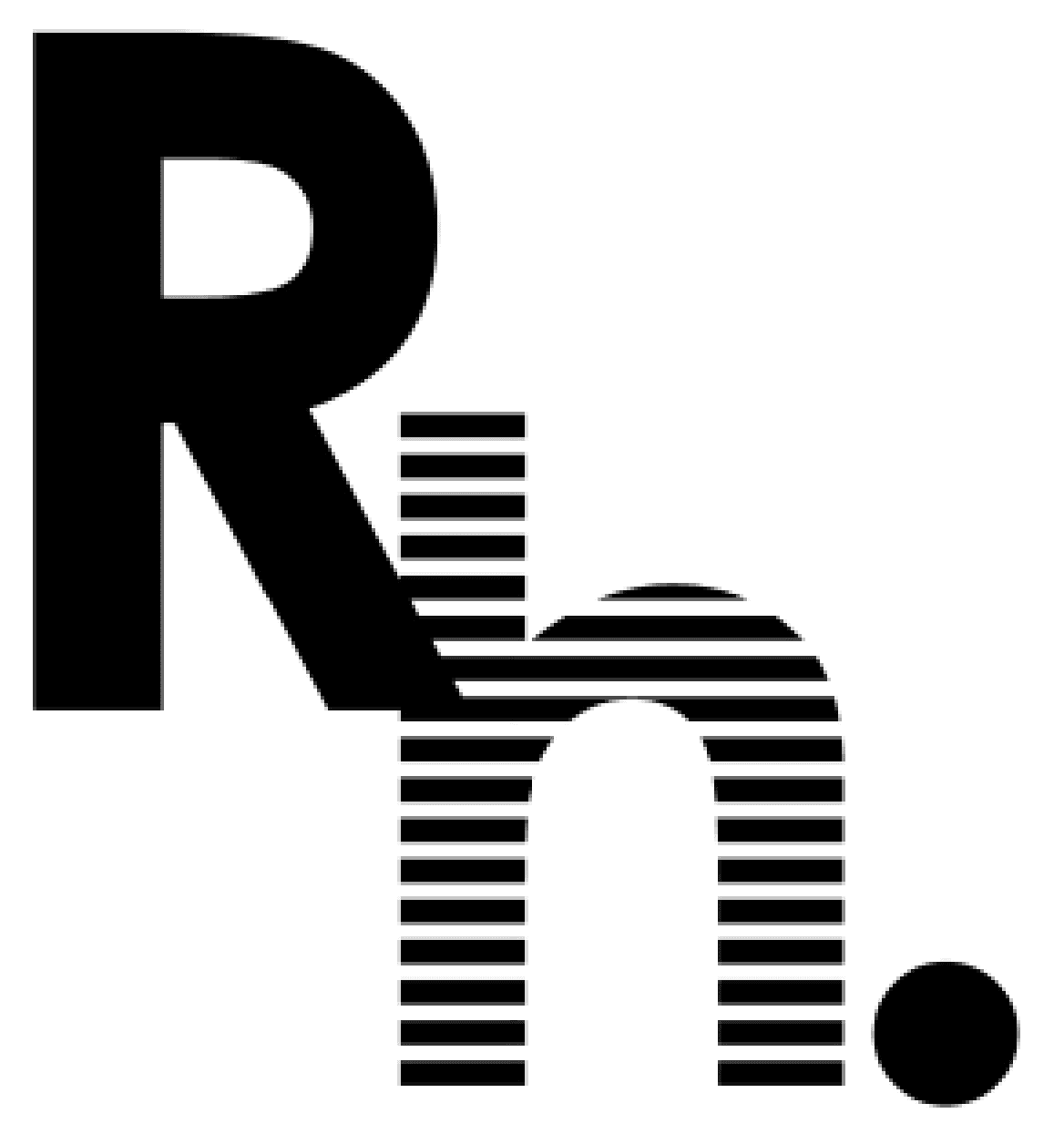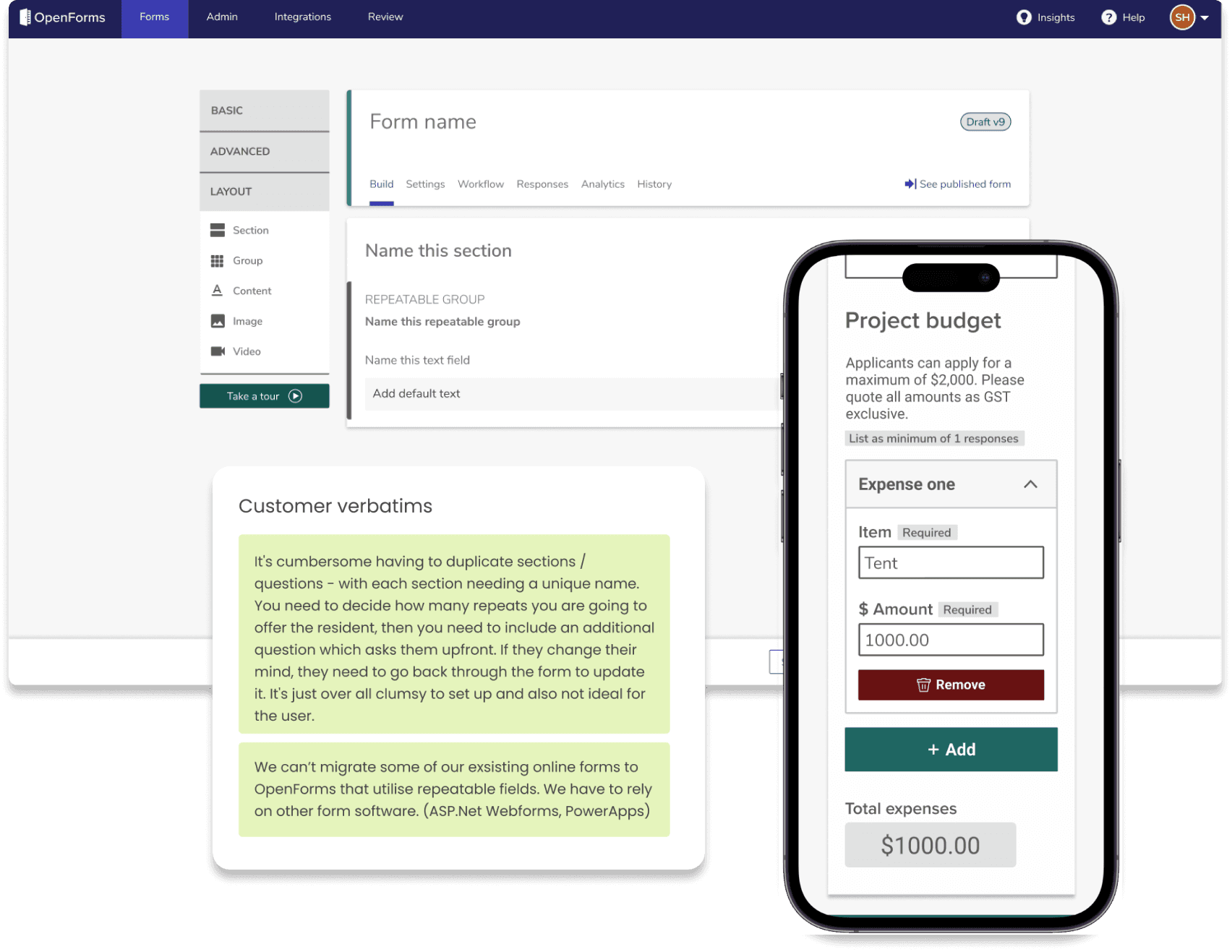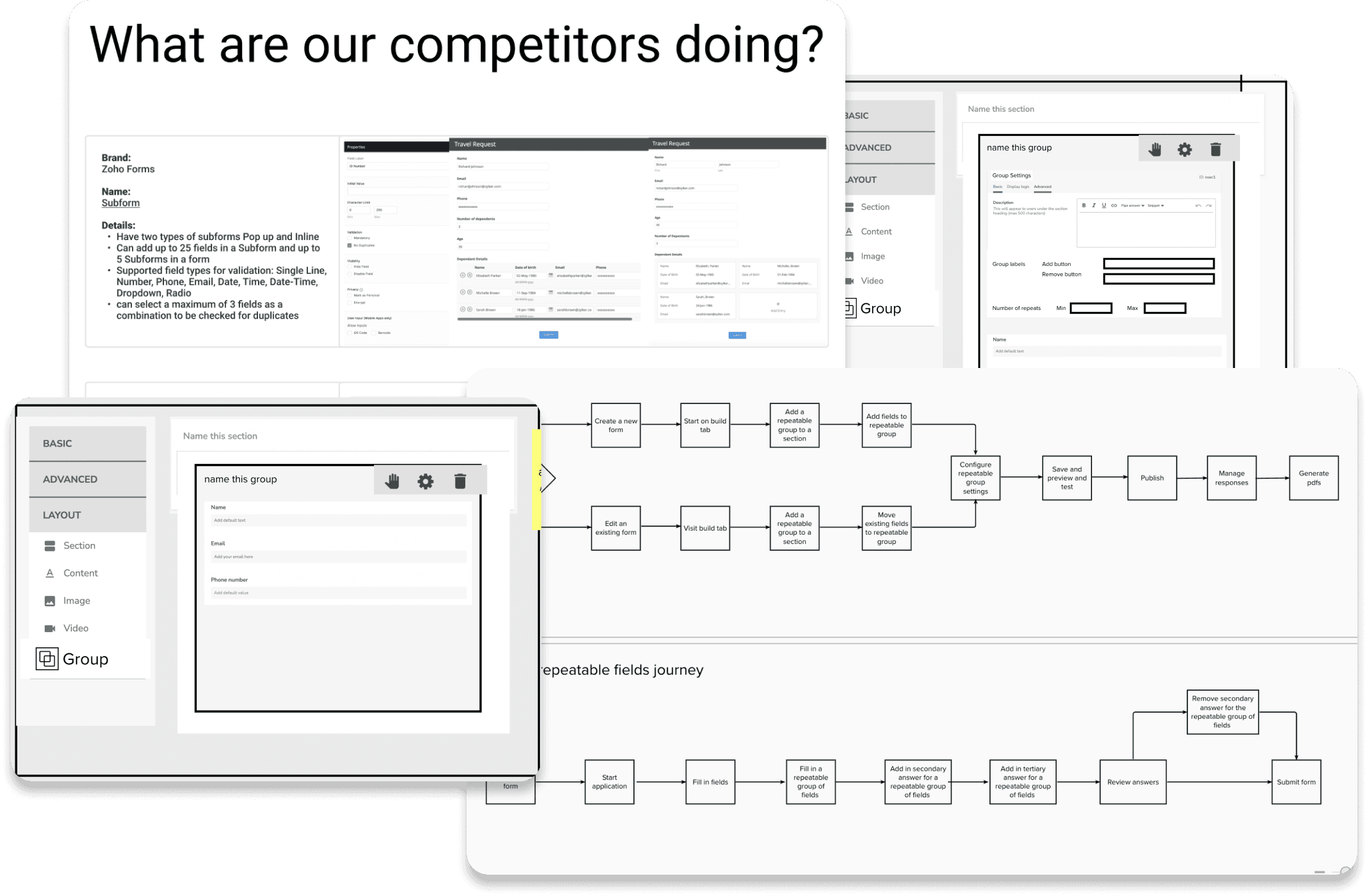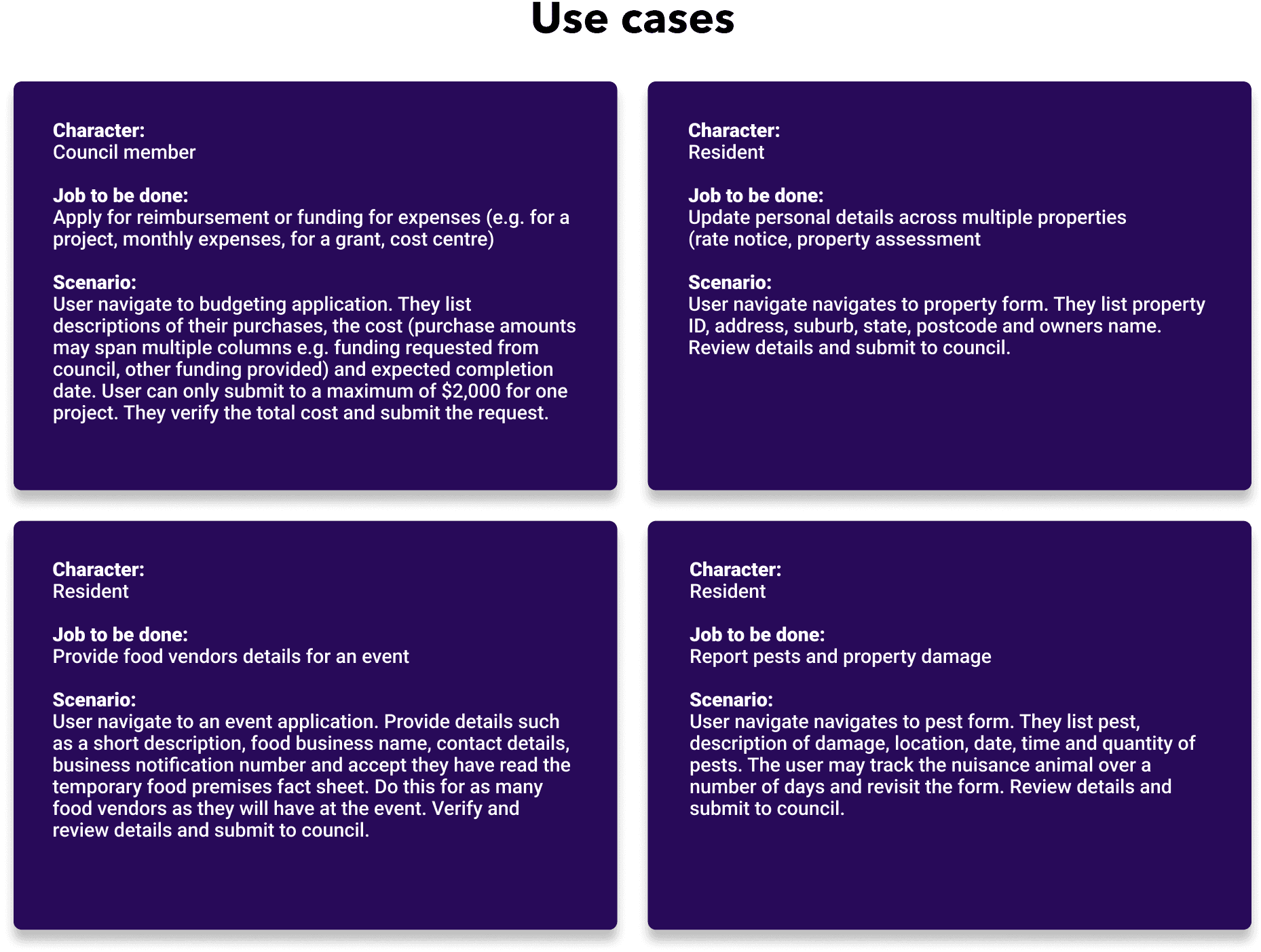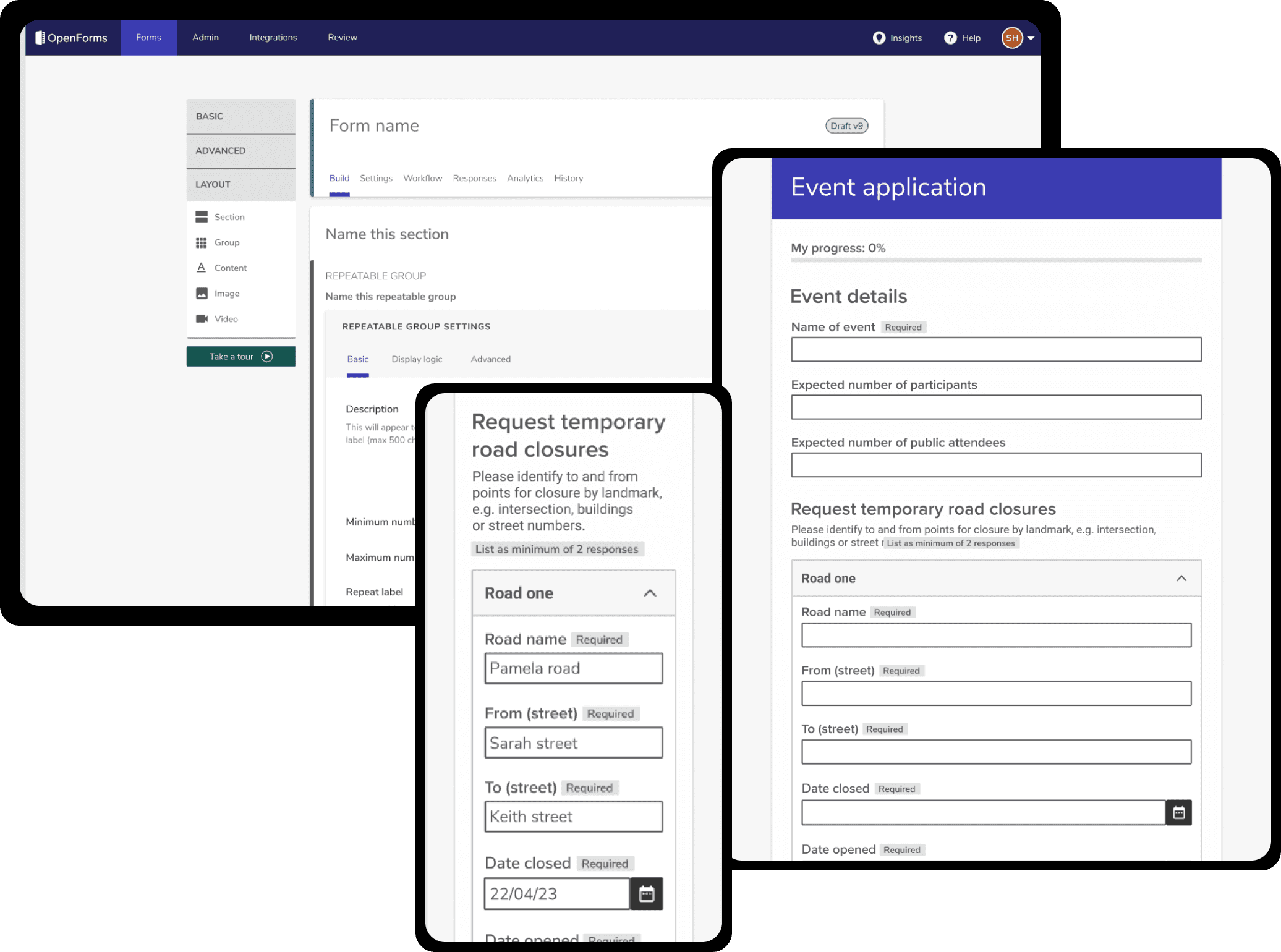Introducing repeatable groups in OpenForms, a form builder for city councils and residents. The product allows users to streamline data entry for multiple items such as registering multiple pets or listing numerous expenses in a single form.
Target Outcomes
Form creators: Reduce the time and effort involved in creating and managing groups of fields that need to collect the same information multiple times. Enable form creators to digitise forms that were previously impossible due to repetitive field limitations.
Form respondents: Use existing and expected patterns for entering repeated groups of information, making form completion faster and easier.
Business: Build feature parity in market, increase form creation speed, build the value proposition for OpenForms, and capture more market share.
My Role
As a product designer, I was responsible for the entire design process, from research and ideation to prototyping and testing. This included:
User research: Conducting interviews, analysing existing data, and creating user journeys to understand the pain points and needs of both form creators and respondents.
Solution development: Brainstorming and prototyping different design solutions for repeatable fields, focusing on accessibility, flexibility and ease of use
Usability testing: Testing prototypes with both internal and external users to gather feedback and iterate on the design.
Collaboration: Working closely with developers to ensure the technical feasibility of the design and address any technical limitations. Working closely with our customer success and growth team to understand user feedback.
Solution
Grouped, repeatable fields: Allow authors to create groups of fields that can be repeated as needed by respondents (e.g., expenses, attendees, vehicles).
Intuitive user interface: Make adding, deleting, and managing repeated fields simple and clear for both authors and respondents.
Flexibility: Support different display options (table, list), calculations across columns, duplicate checking, answer limits, and field re-ordering within the repeater.
Admin controls: Enable city staff to set minimum and maximum answer limits for repeated fields.
Responsive design: The design adapts to different screen sizes and devices, ensuring a consistent experience for all users.
Process
Pre-mission research: I conducted user interviews, analysed internal data, and created user journeys to understand the current state of repeatable fields and identify key pain points. I conducted competitive research to understand how we can meet and improve our feature parity
Validate outcomes: I presented my research findings to the team and validated the proposed target outcomes with stakeholders.
Prototyping and testing: I created low-fidelity and high-fidelity prototypes to test different design options with both internal and external users. I gathered feedback and iterated on the design based on their input.
Technical discussions: I collaborated with developers to discuss the technical feasibility of the design and address any limitations.
Design refinement: I finalised the design based on user feedback and technical considerations.
Results
The feature was shipped in January 2023 and is live today. You can check out the shipping documentation here. I don’t have access to the performance data as I left the company prior to release. What I designed in April 2022 is 90% reflected in the current design and documentation. Due to the designs not significantly changing after I left I believe it improved user satisfaction for both form authors and respondents and gave OpenForms a competitive edge by offering a best-in-class solution for repeatable fields.
